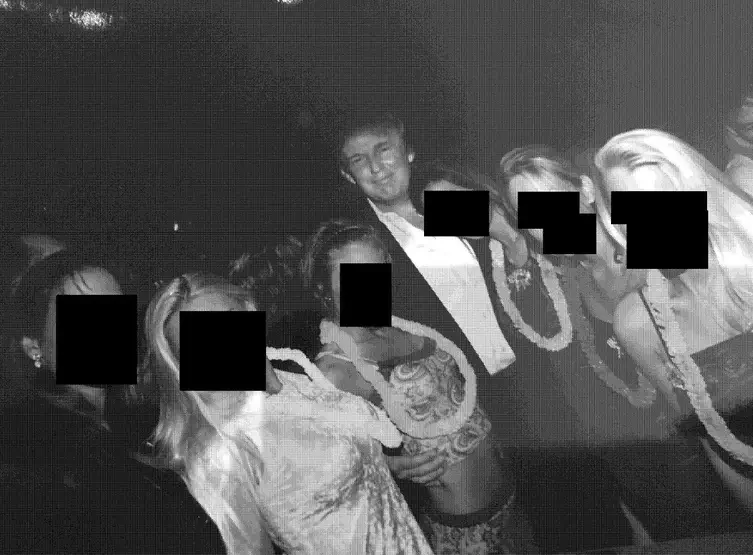Global Feminism
NOW Foundation & the “Gender Shadow Report”
In 2006, a coalition of women’s and human rights organizations submitted a wide-ranging report on the status of women’s rights in the United States to the United Nations Human Rights Committee (UN HRC) for consideration during its 87th session in Geneva. The report documents the failure of the U.S. to conform its laws and policies to promote equality for women as required by a treaty ratified by the U.S. in 1992, the International Covenant on Civil and Political Rights (ICCPR).
The 49-page “Gender Shadow Report” details women’s status and treatment in a variety of areas-in the criminal justice system, under increasingly harsh immigration and asylum laws and from inadequate anti-violence laws, among others. Documented as well are the disadvantages that millions of working women experience because of poorly enforced anti-discrimination employment laws, the lack of unemployment insurance and health care coverage, the perpetuation of a highly inadequate minimum wage that keeps millions of families below poverty-level income, and the serious lack of family supports that are common to other developed nations. These are just some of the many U.S. violations of the sex equality provisions of the ICCPR.
The report also notes the U.S. violation of Article 3 of the ICCPR in its practice of funding and promoting biased and non-scientific abstinence-only sex education, currently supported in public schools by hundreds of millions of taxpayer dollars.
NOW Foundation’s contribution to the “Gender Shadow Report” describes expansive, entrenched, and systemic sex-based employment discrimination in this country. It concludes that laws and policies in the U.S. — in both the private and public sectors — make the U.S. workplace “one of the least supportive employment environments for women of any developed nation.” With alarm, NOW Foundation emphasized that political leaders are currently reducing funds and dismantling programs adopted over the past 40 years that have promoted equality for women.
The report was considered by the UN HRC along with dozens of other NGO shadow reports. Experts from many of these groups, including NOW Foundation’s Program Director, Jan Erickson, traveled to Geneva to advocate their positions to the UN HRC.
In response to the information presented to the UN HRC in NOW Foundation’s contribution to the “gender shadow report”, the Committee accepted NOW’s observations and stated the following in regard to sex discrimination:
“The Committee regrets that many federal laws which address sex-discrimination are limited in scope and restricted in implementation. The Committee is especially concerned about the reported persistence of employment discrimination against women. The State party should take all steps necessary, including at state level, to ensure the equality of women before the law and equal protection of the law, as well as effective protection against discrimination on the ground of sex, in particular in the area of employment.”
NOW Foundation Sends Gun Violence Report to U.N. Human Rights Council
Citing the prevalence of gun violence in the United States and the fact that women are more likely to be victims than men, the NOW Foundation submitted a report for the Ninth Periodic Review of the U.S. by the U.N. Human Rights Council in 2010.
The report documents the correlation between violence against women and family members with readily available firearms. The report also suggests numerous initiatives that would reduce access to firearms by violent individuals. The report was prepared by West Virginia NOW leader Dr. Christina Vogt and is an expansion of a paper submitted by the NOW Foundation earlier this year for a University of Virginia Law School Human Rights Clinic roundtable discussion with U.N. Special Rapporteur on Violence Against Women, Rashida Manjoo.
In 2011, NOW Foundation President Terry O’Neill submitted written testimony to the Senate Judiciary Committee in July, calling for greatly increased funding for Violence Against Women Act programs. The appeal was backed up by data from an annual census, which documented that a significant number of requests for service in 2010 were unmet due to critical staff and funding shortages. In fact, in a one-day snapshot taken by the National Network to End Domestic Violence, 1,746 responding programs reported 9,541 requests for help went unmet. This translates to a yearly estimate of up to 3.5 million survivors of violence being turned away for lack of resources.
NOW Foundation’s Work with the U.N. Special Rapporteur
Also in 2011, NOW Foundation assisted in preparations for the special rapporteur’s mission to the U.S., submitting a discussion paper at a forum hosted by the University of Virginia School of Law’s International Human Rights Clinic in early 2010. The document highlighted various types of violence against women, including gun violence, familicide, gang rape, acquaintance rape on campus, highway serial murders, sexual violence against Native American women, sexual assault in the U.S. military and violence against women in mass media.
The United Nations Special Rapporteur on Violence Against Women (SR VAW), Rashida Manjoo Esq., discussed the report she made to the U.N. General Assembly in October 2011 in a webinar presentation moderated by NOW Foundation President Terry O’Neill.
Ms. Manjoo’s report was a result of a fact-finding country mission to the U.S. which examined such issues as violence against women in prison and detention settings, violence against women in the military, and violence against women who face multiple, intersecting forms of discrimination, particularly Native American, immigrant, and African American women. The report contains a series of thoughtful recommendations on how VAW laws, policies and programs can be improved to better protect women.
NOW Foundation is proud to continue its work with the U.N. Special Rapporteur on Violence Against Women.
Feminists Can be Peace Builders and Advocate for a Cabinet Post, 2020
NOW Foundation Special Rapporteur Report Overview, 2010
UN Shadow Report on Gun Violence, 2010
